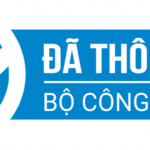The small principality of Andorra, tucked away in the Pyrenees mountains, has been quietly shaping its own hockey history through dedication and grassroots movements. Despite its picturesque landscape and limited population, Andorra has shown a remarkable commitment to fostering ice hockey as a respected sport within its community.
Grassroots initiatives have played a significant role in cultivating a passion for hockey among the youth. Local clubs and organizations engage young athletes, sparking interest and promoting participation at an early age. These grassroots movements are essential in building a solid foundation, allowing the sport to flourish and attract talent.
As we explore the development of hockey in Andorra, it becomes evident that the journey is marked by community involvement, perseverance, and a shared love for the game. This article aims to provide insights into how Andorra’s commitment to hockey has evolved and what the future holds for this noble sport in the principality.
The Role of Local Clubs in Nurturing Young Talent
Local hockey clubs in Andorra play a pivotal role in the development of young athletes. By providing structured training programs and access to experienced coaches, these clubs cultivate essential skills and techniques from an early age. The emphasis on teamwork and discipline within these settings lays a strong foundation for future success.
Participation in local competitions allows young players to gain valuable experience, enhancing their confidence and understanding of the game. Clubs often collaborate with educational institutions to balance athletic pursuit with academic growth, ensuring that players develop holistically.
Additionally, local clubs serve as a bridge to international participation. By organizing tournaments and exchange programs with teams from other countries, young athletes gain exposure to diverse playing styles and cultures. Such experiences not only improve their technical abilities but also broaden their perspectives on the sport.
Community support for these clubs is significant, with parents and local businesses often rallying behind young talent. This fosters a sense of belonging and motivates players to strive for excellence, further enriching Andorra’s hockey environment.
Government Initiatives Supporting Ice Hockey Growth
The government of Andorra actively participates in the development of ice hockey through a range of initiatives designed to enhance the sport’s reach and appeal. Recognizing the significance of hockey culture in promoting national identity, the authorities allocate funds to improve infrastructure, ensuring young players have access to well-maintained rinks and training facilities.
Collaboration with local clubs is prevalent, as these organizations play a pivotal role in grassroots movements. The government supports various programs that aim to introduce ice hockey into schools. This early exposure cultivates interest and encourages children to engage in the sport, contributing to a growing fanbase.
In recent years, incentives have been established for both players and coaches to pursue professional development. Scholarships for training camps and workshops are offered, ensuring that coaching standards rise parallel to player skills. These initiatives create a robust pipeline of talent, elevating Andorra’s hockey history on both regional and international stages.
Additionally, promotional events and youth tournaments are funded by the government, breaking down barriers for participation. Such support has not only improved the visibility of ice hockey in Andorra but has also strengthened community bonds through shared enthusiasm for the sport. For more insights on hockey and related activities, visit https://thepuckauthority.com/.
Challenges and Opportunities for Andorran Hockey on the International Stage
Andorra’s hockey history presents a mix of aspirations and hurdles, particularly in securing a foothold in international competitions. Limited resources and infrastructure often hinder the country’s ability to compete with more established hockey nations. This lack of facilities can restrict training opportunities for athletes and diminish the overall competitiveness of the national team.
International participation remains a significant challenge due to the size of the country and the relatively small pool of players. Nonetheless, this scenario also opens doors for Andorra to collaborate with neighboring regions to boost player exposure and experience. By forming partnerships with clubs in countries like Spain and France, Andorran players can gain valuable insights and training methodologies that are critical for improvement.
Grassroots movements play a pivotal role in laying the foundation for future success. By focusing on youth engagement and community-based programs, Andorra can cultivate a new generation of hockey enthusiasts. These initiatives not only build skills but also foster a lasting passion for the sport. While challenges exist, the ongoing development of grassroots efforts can create a sustainable growth model for hockey in Andorra, potentially enhancing its international profile.



